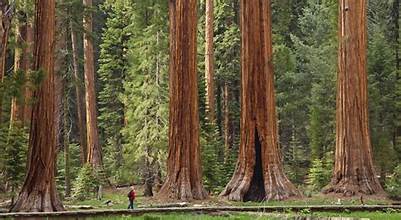Focal Passage: Genesis 17:1
It was one of those Facebook posts you see all the time. Boldface words on a solid yellow background. The post was a single passage of scripture from Genesis. I don’t remember who posted it originally. I only saw the post that one time, but for some reason, the passage kept skipping through my mind like a smooth stone flung across a calm lake.
When Abram was 99 years old, God appeared to him and said, “I am God Almighty; walk before me and be blameless.” (Genesis 17:1)
It is a verse that gets lost in the personal, covenant language that follows as God promises a new relationship with Abram and his people. Like any covenant or promise, it lays out the responsibilities of both parties. God explains in the following verses what he will do. Yet this first verse captures in a nutshell what God expects of Abram.
I heard it all week every time the stone skipped over that water. I am God Almighty. (Skip) Walk before me. (Skip) Be blameless. (Skip)
The words pushed me to slow down and look more carefully at the language itself. The more I looked at the verse the deeper and richer it became. Let me show you what I mean.
The Hebrew word for walk used in the passage is halakh. It’s not like God is telling Abram, “March! Get moving!” Rather, halakh, in one sense, speaks of wandering. Not walking in a straight line. Roaming back and forth.
If that sounds like the aimless meandering of someone who doesn’t know where they’re going, it’s not. It suggests the idea of consistent, purposeful movement. In other words, make a habit of… Develop a pattern of life…
When God tells Abram to walk, he’s saying, “As you go about your life…” or “Wherever life takes you…” “In everything you do, no matter where you are…” For one whose life took more than one unexpected turn, that resonates with me. “In the daily routine of life…”
This idea of walking doesn’t end with Abram. The New Testament picks it up and deepens it. Our walk becomes one of the primary ways Paul and John describe our life in Christ.
Paul writes in Ephesians:
I urge you to walk in a manner worthy of the calling you have received. (Ephesians 4:1)
Our walk, according to Paul, is our daily conduct. Our moral direction. It is all about aligning our relationship with Christ with everything we do. Paul encouraged the followers of Christ in the Ephesian church to make sure their life reflected the life and love of Jesus everywhere they went and in all they did.
John also used walk to describe authentic faith.
If we say we have fellowship with him and yet walk in darkness, we lie and do not live by the truth…but if we walk in the light, as he is in the light, we have fellowship with one another… (I John 1:6-7)
What does that walk look like? Genesis 17 offers another word to guide us. Be Blameless. It’s another skip of that rock we’ve tossed across the pond.
The Hebrew word of blameless is tamim. We can relax a bit because it doesn’t mean sinless or morally perfect. Thank goodness!
Tamim means complete. Whole. Undivided. Think faithful, not flawless. David was called a “man after God’s own heart,” yet he sinned. Even so, he was tamim. A man with undivided loyalty to God.
God tells Abram so we can also hear him. “Live your life consistently with an undivided heart, whole and complete. Don’t withhold any part of your life from me. Give me your all. Live it all before me.”
Pause with me here.
Have you ever studied a passage of scripture, thinking you had it nailed down tightly only to have the nagging sense that you were missing something important? That was me last night. Walk. Be blameless. What was I missing?
Here’s what I noticed. God tells Abram to walk or live out his life, but he says walk before me. The phrase before me expresses a nuance I had not considered. The most literal translation from Hebrew translates before me as before my face.
Before whose face?
I am God Almighty. Walk before me…
At first glance in feels like a foreboding call to obedience because God always has his eye on us, just waiting for us to trip up so he can punish us.
I was a good kid, I think. If I’m honest, I was probably better when I knew my parents were watching. That’s human nature, I suppose, but I just don’t think that’s what God is saying here. It makes obedience a fear response. I’ll walk the straight and narrow because I don’t want to get in trouble.
When you look deeper, God Almighty is calling Abram into a covenant relationship with him. A call to personal relationship. God tells Abram wherever you go in life, whatever you do, do it in my presence. “Be with me. Let me be with you.”
There it is. That’s the amazing thing I missed at first glance. God Almighty wants a personal relationship with me. He wants to walk with me wherever I go. I find that far more comforting than uncomfortable.
Jesus made a similar connection in his last intimate message to his disciples before his arrest and crucifixion
Remain in me and I will remain in you. No branch can bear fruit by itself; it must remain in the vine. Neither can you bear fruit unless you remain in me. I am the vine; you are the branches. If a man remains in me and I in him, he will bear much fruit. Apart from me, you can do nothing. (John 15:4-5)
Can you see how this ties so well to Genesis 17? God tells Abram to walk before him. Jesus tells us to remain or abide in him. To dwell in his presence. To live in him. It’s relational. It’s mutual. It’s Jesus’ way of saying live your life continuously and consistently in the presence of God.
Doing so, allows me to not only be in fellowship with God and others, but to bear fruit…to reflect the life of Christ so others can catch a glimpse of who he is and what he promises.
I am God Almighty.
Walk.
Before me.
Be Blameless.
It is a call to live a Christ-like life in every area of life wherever that life takes us. And always in the strength of our God Almighty.
Not perfect. Just present.
Not flawless. Just faithful.
Not alone. Just alongside.
Maybe that’s where this new covenant takes root. Not in the grand spiritual moments, but in our daily walks with undivided hearts in relationship with an almighty God who delights in walking with us.
Maybe that’s why I still keep hearing it, like a stone skipping across the water again and again and again.
Thinking Points
When you hear God’s words, “Walk before me,” do you experience them more as an invitation to a relationship or as a call to performance? Why?
What areas of your life you tend to keep compartmentalized—places where your heart may not feel completely “undivided” before God?
How does understanding blameless as “whole” or “complete” change the way you think about faithfulness?
What might it look like for you this week to live more consciously before God’s face—reveling in His presence rather than fearful of His scrutiny?









